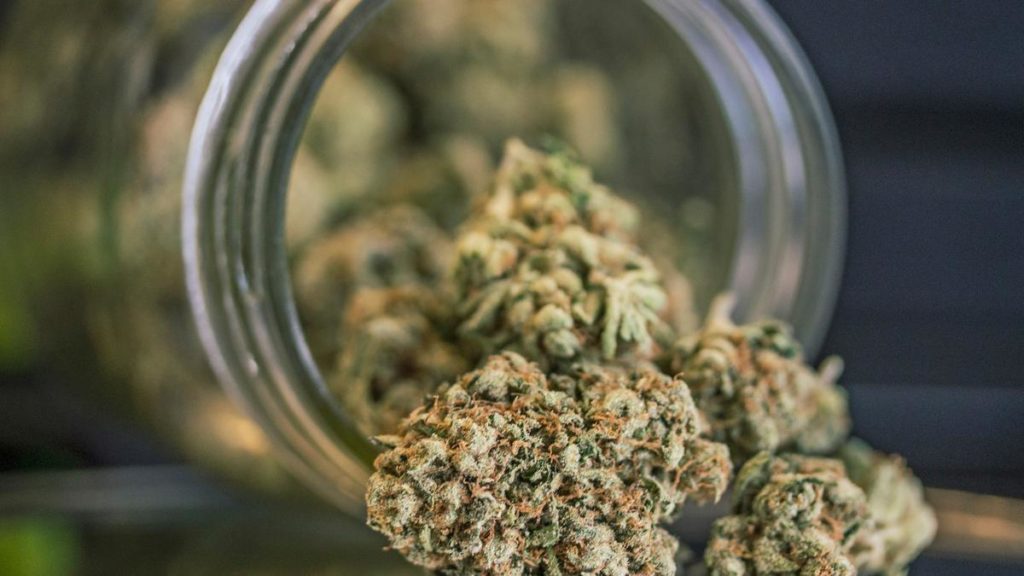Portland Business Journal
With other avenues blocked, there’s an effort now in federal court to open out-of-state markets for Oregon’s struggling cannabis industry.
A Southern Oregon cannabis wholesaler and a Portland law firm are bringing the fight. Their lawsuit in U.S. District Court in Portland asserts that Oregon’s ban on exporting and importing legal cannabis to and from the state is unconstitutional.
All the states where cannabis is legal have similar bans, believing they help shield their markets from federal law enforcement intervention. But Jefferson Packing House, a Jackson County company, and Green Light Law Group say the bans run afoul of the dormant Commerce Clause.
That’s a legal doctrine that holds that because Congress is granted the power to regulate commerce among the states, states in most circumstances can’t get in the way.
“The export ban discriminates against interstate commerce by nakedly prohibiting such commerce, without any legitimate, nonprotectionist purpose,” the suit states.
The export part of the ban is most relevant in Oregon for obvious reasons: It’s a leading cannabis producing state where companies fight relentlessly and mostly unprofitably for slivers of a pie that lately has been shrinking.
Virtually the entire industry sees salvation in selling into other state-legal markets. Industry advocates have prodded politicians in Oregon and elsewhere to try to find cracks in the wall, but a breakthrough doesn’t appear imminent. It doesn’t appear that Congress will punch an opening anytime soon either.
“All the actors in the cannabis in the cannabis space are feeling pain from the downturn in the cannabis economy in Oregon,” Green Light attorney Kevin Jacoby, who is handling the case with the firm’s Andrew DeWeese, said. “This suit is something that we feel is a glimmer of hope, or a hint to regulators of what the next step is.”
Whichever way the district court rules, Jacoby said, the case will likely go to the Ninth Circuit Court of Appeals, which handles federal case appeals in nine Western states, including Hawaii and Alaska. The process could take a couple of years or more.
“If there’s eventually a ruling in the Ninth Circuit that knocks it down, then it follows that export bans in other Ninth Circuit states would be rendered unconstitutional,” Jacoby said. That would free Oregon companies to approach parties in other Ninth Circuit states about selling products to them. Regulators would be bound by the ruling to open the door.
What are the chances this happens? Jacoby sees the courts moving in the right direction. One major question has been whether the federal prohibition on cannabis keeps the dormant Commerce Clause at bay.
Jacoby makes the point that Congress hasn’t authorized the states to discriminate between interstate and intrastate sales. And this past summer, the First Circuit Court of Appeals ruled a residency requirement for licensees in the state’s medical cannabis program unconstitutional, citing the dormant Commerce Clause. That led Robert Mikos, a leading cannabis scholar from Vanderbilt University, to say that import/export bans were “equally vulnerable.”
Jacoby has high hopes for his client, who through Green Light declined to speak to the Business Journal. But he noted uncertainty is inherent in bringing a unique circumstance to the court.
“The dormant Commerce Clause isn’t novel, but it is in this application,” he said. “It can’t think of another analogous bar to interstate commerce like this.”
In a letter to Oregon state officials about the lawsuit, the Green Light attorneys likened the cannabis ban to a law that prohibits “the export of hazelnuts (or grapes, semiconductors, Bigfoot decals, etc.).”
“We believe it is likely that a federal court will treat marijuana like hazelnuts and invalidate state laws prohibiting the export of marijuana notwithstanding the fact that it is illegal under federal law,” they went on.
The letter was to Gov. Kate Brown, Attorney General Ellen Rosenblum and Steve Marks, director of the Oregon Liquor and Cannabis Commission, which regulates the cannabis industry in Oregon. It asked them not to defend the Oregon law. That’s a decision that technically would be Rosenblum’s, presumably in consultation with the governor (or, more likely, governor-elect, Tina Kotek).
Asked to comment, Rosenblum’s office said they had received the lawsuit and were reviewing it.
H/T: www.bizjournals.com



